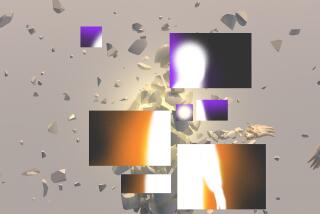Love and Mirrors, Self and Other Self
Amid all these silly but pleasurable Valentine hearts and flowers, maybe we ought to explore some of the reasons why we love.
The foundation for a mature and enduring love, of course, is friendship. A friend, Aristotle said, is another self; thus one of the chief rewards of love can be the intimate discovery of ourselves in another.
Psychologist Nathaniel Branden calls it the “shock of recognition”:
“When we encounter a person who thinks as we do, who notices what we notice, who values the things we value, who tends to respond to different situations as we do, not only do we feel a strong sense of affinity with such a person but also we can experience our self through our perception of that person.”
Deprived Childhoods
Does that ring true for you? It’s called psychological visibility. All of us led deprived childhoods to some degree. Sometimes we felt actually invisible within the family, and even at best we never got quite enough recognition and validation. No matter how hard we might have tried, we could not draw an accurate picture of our inner selves.
Suddenly, standing before us is a flesh-and-blood representation of our feelings. The image may be far from mirror-perfect, but the shock of recognition is nevertheless thrilling. It’s the starting point for our involvement.
In “The Psychology of Romantic Love,” Branden says: “An intimate relationship in which we feel truly seen by another human being always entails elements of self-discovery, the awareness of hitherto unrecognized capacities, latent potentialities, character traits that never surfaced to the level of explicit recognition.”
Consider how much we discover about ourselves in sex in such an intimacy. When love lifts us beyond the mechanical level, we trust enough to stop defending and pretending. A man becomes more male, a woman discovers a wider and deeper femininity.
‘The Power of Vulnerability’
In speaking about his wife, Branden said: “I learned the power of vulnerability, the power of letting others see who I was and what I felt, without defense or apology. I rediscovered the child in myself--not only because she was in contact with the child in herself but because she saw very clearly the child in me.”
It worked the other way too, of course. “Sometimes you are awfully arrogant,” she told him. “It gives me the nerve to accept that part of myself.”
This is where we get the idea that “opposites attract.” We sense areas of our undevelopment that we want filled, but only when we feel a broad underlying agreement on the basics of life do we trust enough to accept our partner’s specific differences. Only then are we reassured enough to dare expose and grow from our own deficiencies.
In this way are the bonds of a true and lasting love cemented.
Defective in Loving
Of course the love process can be aborted at any point. Right from the start I may present an unconscious fantasy self. My loved one’s responses seem right at first but eventually penetrate to my real unconscious. Now I may end the relationship because the other person is offering the wrong feedback and I perceive him-her as defective in loving.
Many people sabotage a love because they do not believe, deep down, that they are lovable. Therefore no “seeing” by the partner is ever enough to impart a sense of personal efficacy and worth.
Second marriages often succeed when an individual with high self-esteem unconsciously senses what went wrong, and this time seeks out a partner with an equal level of self-esteem. The “mirroring” now has a chance to work its magic.
Jim Sanderson welcomes comments from readers; please enclose a stamped, self-addressed envelope if you wish a reply. Write him in care of Sun Features Inc., Box 45, Cardiff, Calif. 92007.
